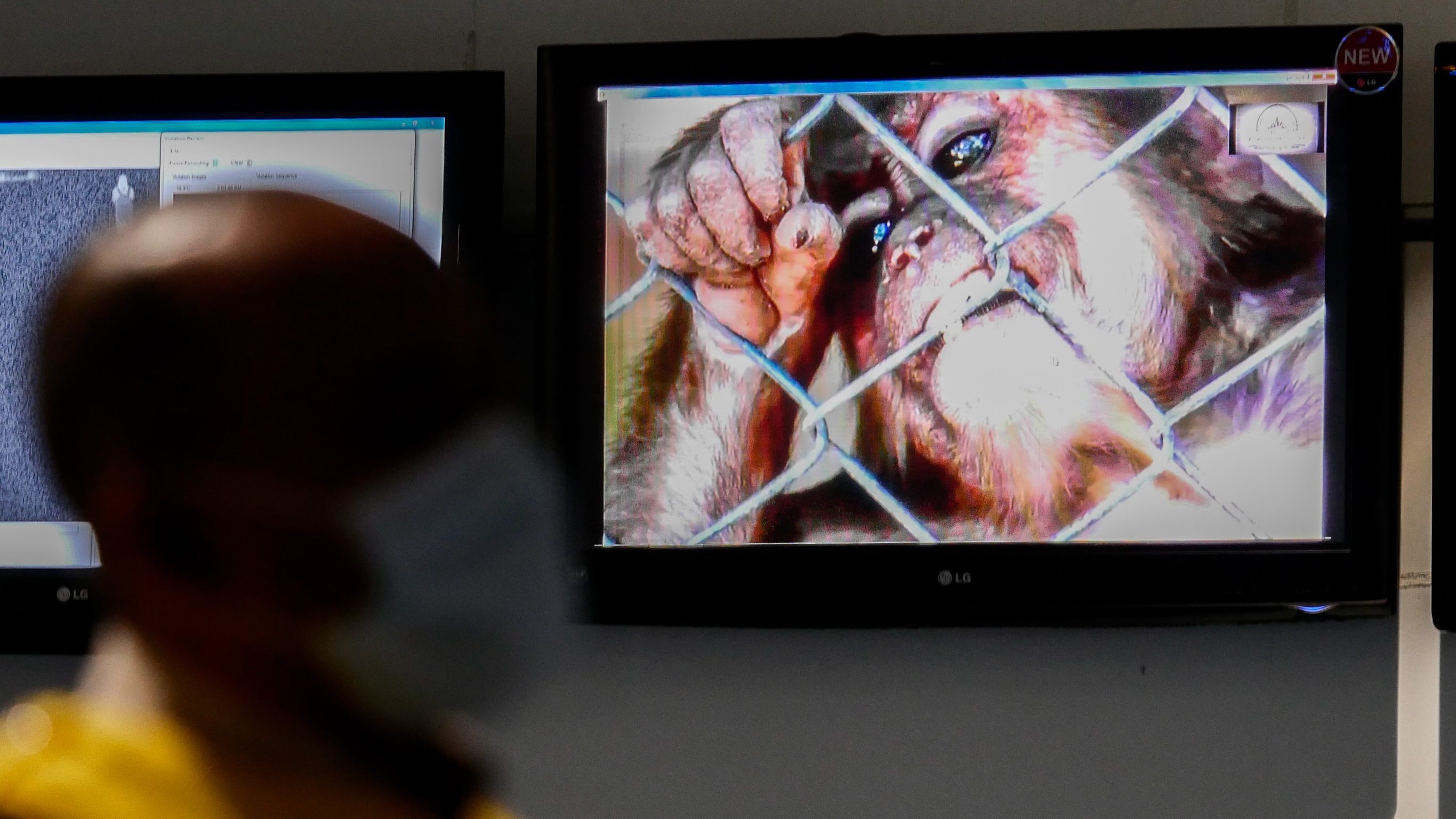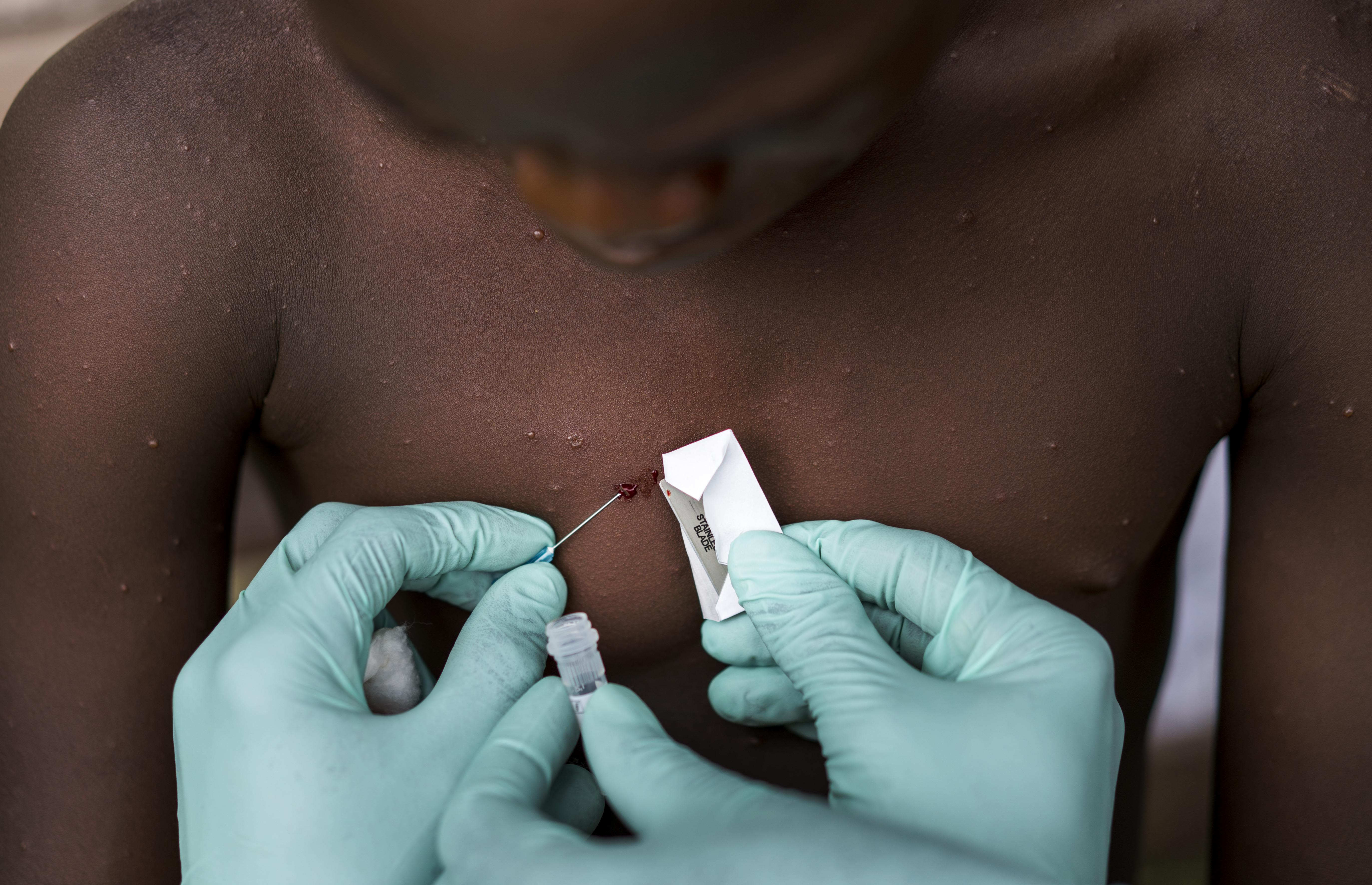A New York City patient has been presumptively diagnosed with the highly contagious monkeypox virus even though CDC tests were inconclusive, health officials said Thursday.
The CDC, which is responsible for confirming cases of the disease, which typically isn’t found in the United States, did not conclusively identify monkeypox in its testing, New York City health officials said, but earlier tests did detect orthopoxvirus, the family of viruses to which monkeypox belongs, and the case presented as monkeypox.
In a conference call earlier this week, the CDC told reporters that such examples should be treated as probable cases.
The New York City patient is being treated in isolation in New York City and contract tracing, an all-too-familiar term in the city amid the COVID-19 pandemic, will continue.
Health officials say an “astute provider” alerted them to the case, launching the investigation. It continues to work with healthcare providers to investigate other reports and warns it is possible additional cases of monkeypox may be identified.
Most New Yorkers aren’t at risk of becoming infected, officials say.
“Monkeypox is rare but can spread through close prolonged contact with an infected person or animal. This might include contact with the skin lesions, body fluids or sharing clothes or other materials that have been used by someone who is infectious, and also through respiratory droplets in prolonged face-to-face contact,” the health department statement said. “As a precaution, any New Yorkers who experience flu-like illness with swelling of lymph nodes and rash occurring on the face and body should contact their healthcare provider.”
The CDC issued a similar message Monday, urging people to seek treatment if needed as it expects to see more rare monkeypox cases emerge in the United States. Just the Massachusetts one has been confirmed so far. A second potential New York City monkeypox case was quickly ruled out by testing, health officials previously said.
The first U.S. confirmed case in 2022 of the contagious monkeypox disease, which is caused by a viral infection similar to those that cause smallpox and cowpox, was reported last week in Massachusetts. According to the CDC, the sample is the West African strain, which is the milder of the two monkeypox strains. Most people who become infected recover within two to four weeks with little or no intervention.
Monkeypox is rare in the U.S. because it doesn’t occur naturally here, according to the CDC. Any cases confirmed in America typically are associated with international travel or animal imports from areas where the disease is more common.
Most potential cases the CDC is investigating do not involve recent travel to countries that typically see a lot of monkeypox, so it says it is working diligently to track the connections. The risk to the general public appears to be low at this time.
Monkeypox is rarely identified outside of Africa, but as of last week, there were 80 confirmed cases worldwide, including at least two in the United States, and another 50 suspected ones.
The World Health Organization says the outbreaks in North America and Europe may stem from sex among men — with a total of about 200 confirmed and suspected cases now reported globally.
President Joe Biden issued his first public comments on the outbreak when asked about the investigation on Sunday At the time, he said monkeypox was something about which Americans should be “concerned.”
“They haven’t told me the level of exposure yet but it is something that everybody should be concerned about,” the Democrat said.
Biden added that work was underway to determine which vaccine might be effective. He was also quick to assure the public that the threat from monkeypox doesn’t rise to the same threat level as COVID.
More Coverage
What Is Monkeypox?
Monkeypox was first discovered in 1958, when outbreaks occurred in colonies of monkeys kept for research — resulting in its name. (What you need to know about monkeypox.)
The first case in a human was reported in 1970 in the Democratic Republic of the Congo, which still has the majority of infections. Other African countries where it has been found: Cameroon, Central African Republic, Cote d’Ivoire, Democratic Republic of the Congo, Gabon, Liberia, Nigeria, Republic of the Congo and Sierra Leone.
Human symptoms of monkeypox are similar to but milder than the symptoms of smallpox, the CDC says. It presents itself as a flu-like illness accompanied by lymph-node swelling and rash on the face and body.
Monkeypox starts off with fever, headache, muscle aches, and exhaustion. Monkeypox also causes lymph nodes to swell, something that smallpox does not. The incubation period is usually 7−14 days but can range from 5−21 days.
Typically, cases recorded outside of Africa have been linked to international travel or animals that have been imported.
The CDC is urging healthcare providers in the U.S. to be alert for patients who have rashes consistent with monkeypox, regardless of whether they have traveled or have specific risks for monkeypox. See more information from the travel notice here.




0 Comments